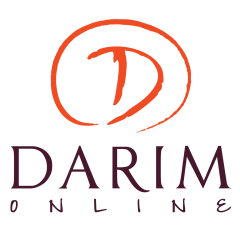Organizational support:
• Resource allocation for volunteers includes budget, tools, staffing, recognition and space
• Volunteer engagement is considered a key component in strategic planning and goal setting
• The board has developed a philosophy statement about volunteer engagement that demonstrates commitment to volunteerism
• The ability to work effectively with volunteers is a criterion for employment for the synagogue and staff are held accountable for their work with volunteers
Needs Assessment:
• Volunteer participation is factored into every facet of congregational life from the top down and the bottom up
• Position descriptions for volunteers aim at fulfillment of the synagogue’s mission
• Volunteer assignments are designed to assist staff with the day to day operations as well as fulfill the synagogues dream list
Interviewing and Placement:
• Prospective volunteers are matched with assignments that are right for them and right for the synagogue
• Volunteers are screened based on the level of risk of the assignment
• New members are encouraged to volunteer as a means to establishing themselves in the synagogue community
• Volunteers have the flexibility to change assignments from time to time
• Career ladders for volunteers that provide increasing responsibilities are available to develop potential board members from the plan from the volunteer pool
Orientation:
• Resources such as space and equipment are allocated to volunteers ass needed
• The synagogue budget reflects the costs involved in effective volunteer engagement including recruitment, training, retention and recognition
• All volunteers are oriented to policies and procedures that are relevant to their assignment
• Each volunteer receives training based on the level of responsibility of his or her assignment
Effective Recruitment:
• Each volunteer position has a recruiting plan
• The synagogue’s member database includes information on the skills and talents members are willing to share
• Recruitment is personalized and existing volunteers are considered the best recruitment resource
• All synagogue collateral materials (brochures, flyers, newsletters, invitations, bulletin boards, and website) include information on volunteering
Supervision and Support:
• Every volunteer receives support based on the level of responsibility required in the volunteer assignment
• Volunteers are held accountable for the work that they do
• Volunteer work is regularly evaluated for efficacy and impact on the synagogue
Retention Strategies:
• Volunteers receive both formal and informal recognition for the work that they do
• Volunteer successes are celebrated and documented
• Volunteers have flexibility in what they do and where they do it
• Volunteers are encouraged to volunteer in different areas of the synagogue
• A volunteer benefit package has been developed
Copyright © 2005 by STAR (Synagogues: Transformation and Renewal) and republished with permission.
 As part of our 10th Birthday Celebration, Darim is thrilled to announce our new book club! Following on the success of our recent webinar with Allison Fine, we are starting a book group to dive more deeply into The Networked Nonprofit and what it means for transforming Jewish organizations.
As part of our 10th Birthday Celebration, Darim is thrilled to announce our new book club! Following on the success of our recent webinar with Allison Fine, we are starting a book group to dive more deeply into The Networked Nonprofit and what it means for transforming Jewish organizations.
 This post is part of
This post is part of  Yes, folks, it may be summer but it’s time to start thinking about going back to school!
Yes, folks, it may be summer but it’s time to start thinking about going back to school! 
